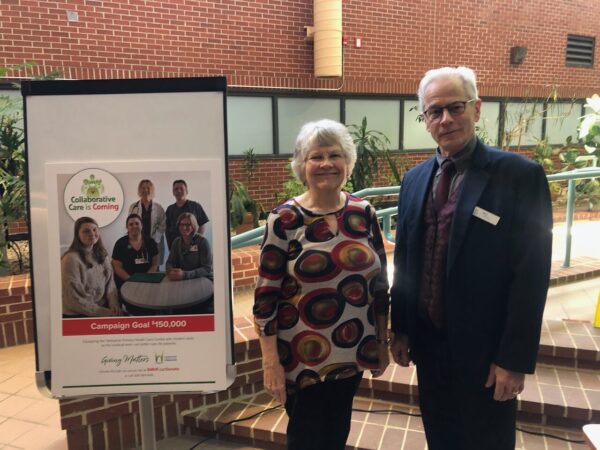
Mount Allison University is lending a hand with COVID-19 vaccine storage in New Brunswick… Or actually, they are lending some freezers.
The university is loaning two -80-degree lab freezers to the province for vaccine storage over the coming months.
Erica Butler spoke with Dr. Amanda Cockshutt, Mount Allison’s Dean of Science, to find out more about how the loan happened:
Mount Allison offered use of the freezers to the province after a researcher suggested that the university might be able to spare one or two. “I totally agreed,” says Cockshutt, “that with some careful planning and working together, we could do that.”
Vice President Robert Inglis got involved, and on December 23rd, the province expressed interest in taking up the school on their offer. The plan came together over the Christmas break, says Cockshutt.
“We had a group that went in on the 23rd,” says Cockshutt, “and consolidated a couple of freezers.”
“We got rid of a few samples that were a little past their best before date, that we no longer needed. We’d already published the work and the students had finished those projects.”
Mount Allison owns a total of seven minus-80 freezers, says Cockshutt, and researchers were able to consolidate storage of samples into five units, freeing up two for COVID-19 vaccine storage.
“People came in at various times over the break to do some work on their freezer samples and to move things from one building to another, from one freezer to another,” says Cockshutt. The moves and consolidation have to be done quickly and with iceboxes, she says, “because these things can’t warm up.”
Minus-80 freezers are often used in lab work, says Cockshutt. “We use them all the time in the life sciences in particular, to store samples that have things like DNA and RNA and protein in them, that are going to degrade if they’re kept at a higher temperature.”
“The normal freezer on your fridge is about minus-20 degrees Celsius,” says Cockshutt. “And these are minus-80 Celsius. So they’re very cold. You’d burn yourself if you try to touch a piece of metal at that temperature.”
Special gloves are required to handle items in the freezers, says Cockshutt.
ARE ULTRA-LOW TEMP FREEZERS THE NEW TOILET PAPER?
Normally, ultra-low temperature freezers are not that difficult to get, says Cockshutt. They cost between $10,000 and $20,000, which she says is, “not a high end piece.”
“But of course, every country in the world needs some right now,” says Cockshutt, which is creating a scarcity.
The Pfizer-BioNTech vaccine requires storage at ultra-low temperatures. “It’s the part of the delivery protocols,” says Cockshutt. “They must stay frozen, below minus-60 or minus-70, until they’re injected.”
“Normally, it’s not that big a deal to get one, but right now you can’t get one for love nor money,” says Cockshutt.
Mount Allison has committed to do without its usual supply of ultra-low temperature storage space until the vaccine rollout is complete.
“We’ve talked about September of 2021 as the return date,” says Cockshutt. “But that will depend on the vaccine rollout. If it goes faster, and they’re done with it, they’ll return it as soon as they’re done. And if it takes a little longer, we understand that.”
New Brunswick Public Health did not respond to an enquiry about where the freezers would be used.



















